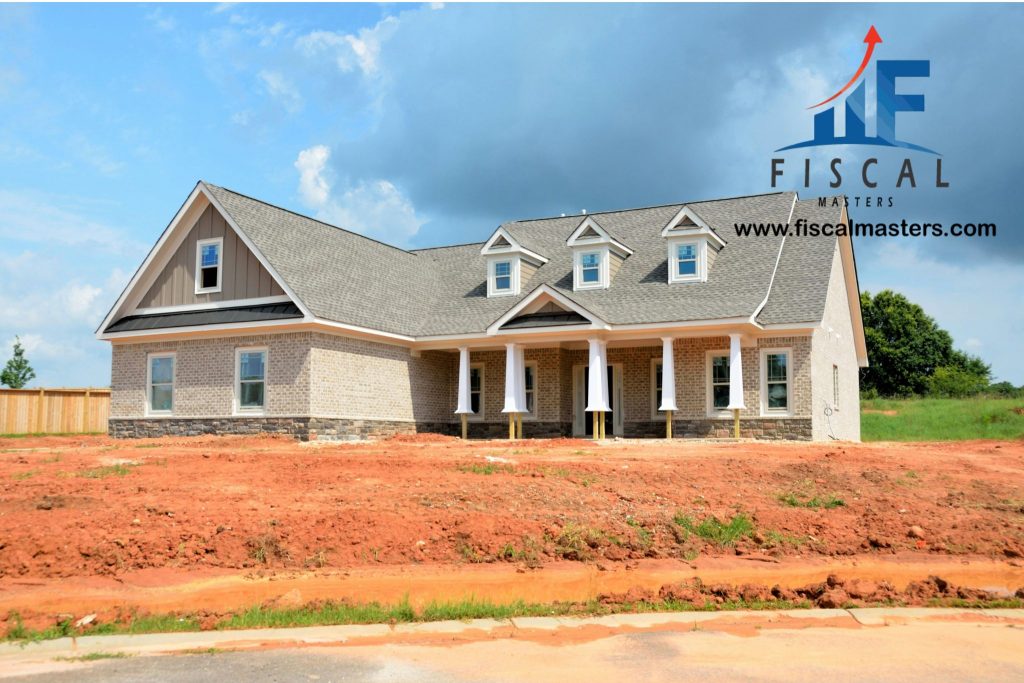Maybe you’ve heard about real estate investment, but you’re confused on where to start? Buying a property for the purpose of investment is a long-term decision, which should be approached very wisely. Real estate has been used as an investment tool for years and it is well known that this is not always a safe path. As with any financial venture, there are definitely some distinct benefits and drawbacks that a person should consider before getting involved with this type of investment plan.
In this guide, we will learn more on matters like investment techniques, areas with high returns, and aspects such as cash flow to help in decision-making to decide if real estate investment is suitable for one. All the benefits, which range from tax benefits to questions concerning property management, will be discussed. By the end of this, you should have a clear understanding of how real estate fits your objectives and your capacity to handle volatility along with actionable steps. undefined
Getting Started in Real Estate Investing
Just like any business venture, learning the basics of the investment before risking your hard earned dollar simplifies things. Effective online real estate investing courses teach relevant information through experience of professional investors.

Types of Real Estate Investments
Investors should take some time to analyze location, tenants, and the possibility of using a specific sector’s unique features as leverage before investing. There are several different asset classes within real estate to consider:
Residential: Single Houses, Condominiums and Multi unit apartments are for sale for those who intend to live single or in a family unit. Rental income originates from the leasing out of living units.
Commercial: Among such structures there are offices, shops, warehouses, industrial parks and commercial premises that offer their spaces for rent.
Raw Land: When the surrounding neighborhoods become developed, empty lots that are planned for development become more valuable. Selling/flipping appreciates over time.
Hospitality: Accommodation facilities such as hotels, resorts, and any other types of lodges get their revenues from the short-term travelers.
Read it also: Top 5 Common Investment Mistakes for Beginners and How to Avoid Them
Factors to Consider Before Investing
These are such factors as amount of cash, kind of income required now or in the distant future, and the capacity to bear professional risk. Conduct evidence-based research on the target markets such as the location requisites, or type of properties with regard to market factors. Ensure that the extent of time that you are willing to spend in property management is sincere.
Important Real Estate Terminology
A working knowledge of the general terminology that operates in a business sector liberates more effective decision-making. Capitalization rate or ‘cap rate’ is a representation of a certain portion of the income of a property in relation to its value.
From experience, debt-coverage ratio shows the capacity of making debt payments from the rents. Loan-to-value relates the borrowed amount to the worth of the asset that has been pledged. Coupons refer to cash-on-cash return that considers profitability with regards to the money used.
Determining Investment Goals and Strategy
Goal setting helps one in choosing the right platform for the real estate endeavor. Think about immediate liquidity or cash requirements and on the other hand wealth creation. Risk tolerance should also be considered as one of the important conditions concerning the amount of time available for trading.
Short Term vs. Long Term Goals
Expecting to have funds required within the next 5 years benefits cash-flowing investments such as multi-family real estates. Some achieve multi-decade goals by employing long hold appreciation plays of single-family homes
Active vs. Passive Investment Styles
Active investment differs from passive investment in the sense that it involves direct management of assets for cases in the area of tenant screening activities, as well as in the management of repair services. All those willing to devote much time to property management should consider passive sorts of funds with the help of turnkey rentals in the shape of REITs..
Getting Started Strategically
Beginner steps establish solid footing for fruitful futures. Education precedes investment.
Research Your Options
It is recommended to analyze differences between available paths comparing nuances affecting control, risk, and returns. Choose the optimal level of involvement according to the strengths that are in parallel with the objectives.
Develop Your Network
Subject matter experts increase awareness of market dynamics and off-market opportunities. Forum communities share advice which open wider vision.
Consider Partnerships
Partnering reduces capital needs and accountability since the risks are spread across the different partners. Joint ventures also foster long term industry acquaintances enhancing prospects.
Get Educated
Real estate investing courses provide better results than studying alone and take less time to complete.Leading programs provide accredited prerequisites for auditing markets, estimating cash flows, estimating rehab costs and organizing offers.
Individual Factors
Take into consideration such advantages as negotiative capabilities, numeracy, people-oriented abilities, and limitations such as time/financial influence involvement instantly.

Strategies for Beginners
Getting your feet wet opens doors to profitable lifelong habits. Low-risk entry points welcome cautious newcomers.
House Hacking
As a discipline of real estate investment, house hacking is perfect for novices as the risks that are involved are relatively low. The way it functions is by buying a multi-family property for example a duplex or a triplex and occupying one of the units for instance the duplex. This in turn helps to decrease your monthly charges on shelter.
If you live in one of the units, then you can easily rent the other units to unique residents to meet most or all of the mortgage. In this way, the rent payments will cover more portions of the cost since your tenants start repaying the loan amount.
Leveraging a Primary Residence
Home-equity lines of credit (HELOC) taps home-value for investment down payments.it works like a credit card like you’re borrowing against the equity you’ve built up from making mortgage payments over time. Interest on HELOC funds is usually tax deductible as investment interest too.
Say your home is worth $300,000 and you still owe $150,000 on your mortgage. That means you have $150,000 in equity built up. A HELOC may allow you to borrow up to 80% of that equity amount, or $120,000 in this case.Now you have a low-interest loan of $120,000 that can act as the down payment on a new investment property. The rental income from that property helps pay back the HELOC over time.
Seek Mentorship
As a beginner, one of the most valuable things you can do is partner up with an experienced real estate investor who can mentor you. More experienced mentors have already made mistakes and learned lessons along the way. This can save you a lot of time and money compared to learning through trial and error alone.
A mentor can also connect you to their network of professionals like lenders, contractors, brokers and attorneys. Having the right team supporting you makes the whole process much smoother.
Purchasing Rehabs Conservatively
It’s best to start with smaller, less extensive fixer-uppers. Focus on cosmetic upgrades like paint, flooring and landscaping rather than major structural work. Keep the rehab budget modest at no more than 50% of the “after repair value”.
Hire licensed, reliable contractors with a track record of completing projects on time and on budget. Get firm quotes and don’t rely on estimates alone. Add a 10-15% buffer to the contractor’s quote in case of unexpected issues.
Consider Turnkey Rentals
Purchase properties professionally managed hands-off without direct landlord duties.A turnkey real estate company purchases homes, renovates them nicely, furnishes them and finds tenants to live there. They handle all repairs, maintenance and tenant issues too.For someone just starting out or with limited free time, turnkey rentals let you benefit from real estate investing immediately with no property management duties.
Maximizing Cash Flow Potential
Rental profits drive portfolio growth over time. Carefully select properties optimized for positive cash flow monthly.
Cash Flow and Income Potential
Real estate rental income is the single factor that stimulates the expansion of your real estate business. That is why income must be greater than the costs such as the mortgage, taxes, insurance, and maintenance to achieve positive cash flow. Estimated future performance of a specific property investment, when underpinned by cost repeats on rents of similar properties provide foresight into profitability.
Reliable Rental Income Streams
Rent checks from the tenants are remitted systematically to support the system. Target locations with market competitive rent that reflects their cost structure including the mortgage, utilities, insurance, and provision for repairs. Budgetary forecasts provide estimates of viability with forward-looking pro formas.
Appreciation and Equity Growth
Real estate can be seen as having appreciation value as an asset class over many years. This value growth reinvests if properties appreciated in value than the declines in mortgages. For instance, a 200k rental bought with 20% down and appreciating 3% per annum means over 50k profit excluding rentals in a decade. Patience reaps great rewards when waiting for money in illiquid investments such as stocks in real estate businesses, which offer good returns in the form of cash inflows and capital gains.
Building Equity Over Time
Every rental dollar erodes mortgage amounts increasing ownership share. At the same time, inflationary pressures call for similar value enhancements setting owners at a more financially advantageous position. Switching the appreciated stock with new one merely builds chokes while managing risks with conservative gearing up.
Leveraging Appreciating Assets
Fruits ripen through calculated risk taking through the process of borrowing against the appreciating holdings. Low interest, fixed rates guarantee stability setting the portfolio for fluctuation inevitable in cost average duration recurrent over multi-decade spans. Sustainability in accessing the real value boosts the profitability to multiply the value of enterprises.
Evaluating Investment Properties
Strict feasibility analysis takes into account the fit as follows: interior condition to rent feasibility, locale. Extensive Comprehensive analysis considers intrinsic-extrinsic variables:Extensive Comprehensive analysis considers intrinsic-extrinsic variables:
Physical Condition: Lifespan of structure / mechanicals investigation discovers repair requirements. The acquisition costs complement the tenancy with the possibility to increase in value.
Market Rents: When analyzing comparables average per sqft rents ensure that costs are covered with positivity through positive cash flow. Cushions justify repairs between turnover.
Expenses: Pro forma wisely estimates taxes, insurance, utilities, maintenance, the vacancy rate, based on regional standards. Excess expenses jeopardize feasibility.
Tenant Demand: The extent of renter pool depth in accordance with property quality helps to ensure stable occupancy and rents’ rise as improved tenants appear.
Cap Rate/Cash on Cash Return: Comparing the revenue generation potential of investment to management expenditure and, by extension, other forms of investment sustains profitability regarding risk parameters.
Conventional risk assessment minimizes exposure and unexpected costs. Consequently, overall analysis guarantees the achievement of value and cash flow growth providing more objectives. Experts’ vision also bolsters hope before bidding comes to a close.

Best Places to Invest in Real Estate
There are several factors to be considered for investing like Observations made consistently fine tune where some new hotspots are emerging. The demographics influence the right investment portfolio such as
- Low cost cities with employment opportunities experience an increase in population that needs shelter. Fundamentals drive values upward.
- University areas ensure the tenant uptake around university regions. Strong cash flow cancels up the appreciation of price.
- High tech employment lures, such as job centers for technology and health care and industry, provide high income residents needed to energize neighborhoods.
- These favorable climates pull in retirees while the youthful generation keys on the outdoor lifestyle. The repetition is quite encouraging; where there is consistency, there is turnover, and, of course, cash flow.
- Development-enhancement projects such as the extension of a public transport or building of stadia enhance property values around them.
- Residential properties, with features including proximity to beaches, parks and beautiful mountains are preferred by leisure home buyers. Scenic backdrops retain prestige.
- Growth, affordable priced goods and services,and suitable conditions of living of these middle sized cities which portray the growing economy of these cities interest the nation. That is why early movers are provided with ground floor opportunities.
FAQS
How to invest in real estate?
There are several options – purchase rental properties, Flip houses, invest in REITs, purchase vacant land, partner with developers. Common strategies are buying multifamily properties or single family homes for rentals.
Is real estate a good investment?
Yes, real estate can be a great long term investment if you do it right. Property values generally appreciate over time, rental properties provide monthly income, and the mortgage pays itself down. However, it does require capital, ongoing maintenance costs and management work.
How to finance real estate investment?
Options include using savings for down payments, taking out loans (conventional, hard money, private), partnering with investors, using retirement funds like 401k, leverage equity in the current home, using rental income for larger purchases.
Conclusion
Basic knowledge of real estate with the assistance of quality literature serves as the basis for well-rewarded careers. It clearly indicates that small steps which are often repeated are essential in achieving big goals over time and without much patience. Development stems from evaluating a person’s abilities and tolerance levels to risks together with the mentor’s suggestions. Start cautiously utilizing the existing streams of capital such as primary residences.
As confidence increases, consider value-adds, rentals as well as commercial properties. Ongoing learning enhances the manner in which a strategy is implemented while networks expand the awareness of opportunities. However first properties are bought using lessons from those trusted guides, and empires are started from them. As it is often said, where there is will, there is a way and, also, work miracles!
